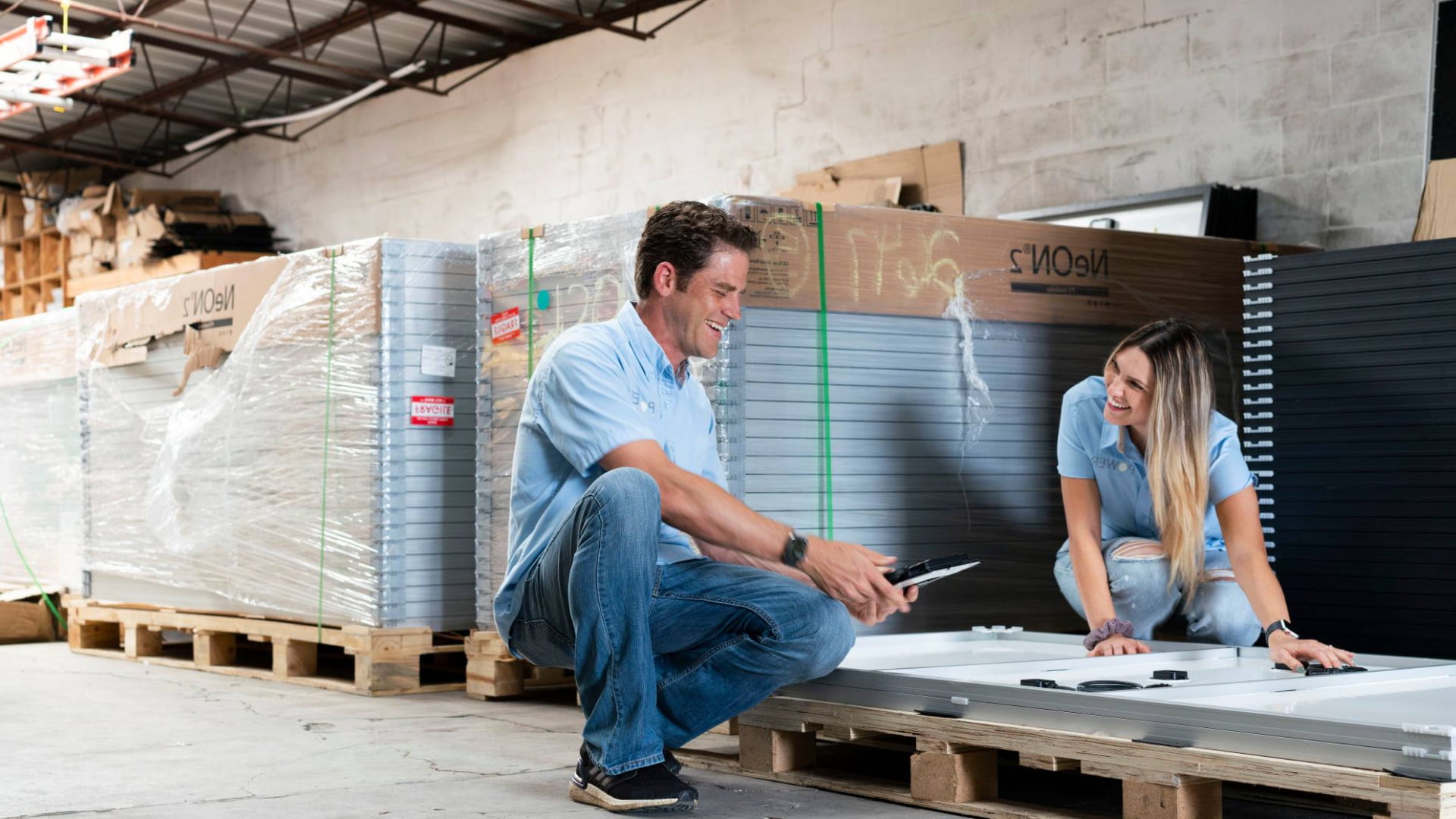
Solar PV testing with PPM Solar
Whatever your solar PV testing needs are, we have you covered.
Are you using traditional tools to test solar PV installations?
Using traditional tools such as a clamp meter or multimeter to test and troubleshoot solar PV installations takes a lot of time. The accuracy of your results can vary.
There is a quicker and more accurate way to test solar PV systems, which could give you extra time to book more jobs and make more money.
PPM Solar provides a number of PV test solutions for residential, commercial, and utility solar systems. These solutions are used and trusted by thousands of solar PV professionals across the world.
What do you need to know about testing solar panels?
Inspections with Infrared Thermography
Solar system testing presents unique challenges to all operators, from homeowners to utilities. Compared to routine testing and commissioning, Infrared (IR) scanning can resolve some of these challenges at a fraction of the cost and time.
IR thermal imaging is performed with handheld devices and drones. PPM Solar has all the necessary equipment and a licensed drone pilot on staff.
Thermal scans allow for exceptions or anomalies to be clearly defined and detailed in the thermal image. Scanning is performed under normal operating conditions without service disruption. Inspections are conducted to locate dead strings, hot spots, gas pockets, cell cracks, short circuits, and other anomalies in PV arrays.
Commissioning Services
PPM Solar carries out all commissioning services required by the International Electrotechnical Commission (IEC) 62446:2016, including I-V Curve Testing. I-V Curve Testing is a comprehensive commissioning test where we measure the relationship between current and voltage while varying the electrical load from open circuit to short circuit. Measurements are then converted to Standard Test Conditions (STC), and module performance is verified.
Advantages of Advanced PV Testing
New Projects: Quickly assess compliance and proper completion of your solar project.
Existing Projects: Maximize your revenues by quickly identifying weak links and conducting preemptive, early, and general service. This approach will help keep manufacturers and contractors accountable for their warranties.
We deliver your customized quote in one day! Compare PPM’s quote with quotes from other installers!

Frequently Asked Questions
What is solar PV Testing?
Photovoltaic (PV) systems harness the power of sunlight, utilizing semiconductor materials to create electricity through the Photovoltaic Effect. PV testing refers to the thorough examination of each individual module that constitutes a PV array, ensuring each component functions optimally within the system. This critical testing unfolds at several junctures, such as the pre-installation phase (assessing individual modules), during the system’s commissioning, or throughout its operational and maintenance lifecycle, ensuring the integrity and optimal performance of the PV system.
Why do you test commercial solar installations?
To maximize energy output, it’s crucial to identify any malfunctions or defects, assess thermal performance, and monitor for power fluctuations. Unresolved issues can lead to significant losses for commercial entities, particularly if operational halts are necessary during repair or replacement processes.
How do you carry out solar PV Testing?
Pre-installation testing is conducted on the individual modules. It can also be performed during system operation and maintenance.
Do you provide PV testing services for residential installations?
Yes! PPM Solar offers residential solar system testing via infrared (IR) scanning. IR thermal imaging is performed using handheld devices and drones. PPM has all the necessary equipment and a licensed drone pilot on staff. We also offer I-V Curve Testing, a comprehensive commissioning test. This highly controlled test includes measurements of current, voltage, ambient temperature, cell temperature, irradiance, and insulation resistance.